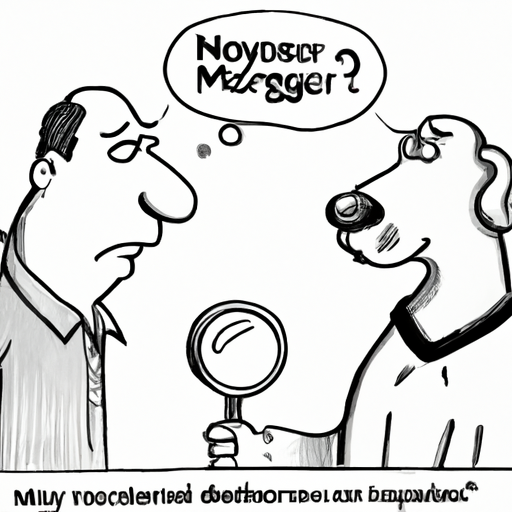As a caregiver for your beloved canine companion, you’ve probably noticed that the state of your dog’s nose can change from day to day, hour to hour. Sometimes it’s wet and cold, other times, it’s dry and warm. But what does it mean when a dog’s nose is dry? Is it a sign of illness? Should you be worried? This article aims to demystify the canine nose, debunk some common myths, and provide you with a thorough understanding of your dog’s health.
H2: Understanding the Canine Nose
A dog’s nose is a remarkable organ. Its incredible sense of smell, far surpassing our own, is a testament to its complex structure.
- The Wetness: A dog’s nose is typically wet due to the presence of a thin layer of mucus. This mucus aids in the absorption of scent chemicals. Dogs also wet their noses by licking them, which helps to keep them clean and enhances their ability to detect scents.
- The Dryness: There are several reasons why a dog’s nose might be dry. These can include normal fluctuations throughout the day, exposure to heat or cold, and certain health conditions.
Let’s delve into these factors in more detail.
H2: Reasons for a Dry Dog Nose
A dry nose doesn’t necessarily indicate a sick dog. There are numerous benign reasons why a dog’s nose might be dry:
- Sleep: Dogs’ noses often dry out while they sleep due to reduced tear production.
- Weather: Just like human skin, a dog’s nose can dry out in hot, cold, or dry weather.
- Age: Older dogs often have a drier nose than younger ones.
- Dehydration: A dry nose can be a sign of dehydration, especially if accompanied by other symptoms such as dry gums or excessive panting.
The following table summarizes these common causes:
| Causes of Dry Nose | Description |
|---|---|
| Sleep | Reduced tear production during sleep |
| Weather | Exposure to hot, cold, or dry conditions |
| Age | Older dogs tend to have drier noses |
| Dehydration | May also include symptoms like dry gums or excessive panting |
H2: When a Dry Nose Indicates Illness
While there are many harmless reasons for a dry nose, it can sometimes be a sign of an underlying health issue. If your dog’s nose is persistently dry, cracked, or has a discharge, it is advisable to consult a vet.
Possible health issues can include:
– Nasal hyperkeratosis: A condition where the nose tissue grows excessively, leading to a dry, hard, often crusty nose.
– Skin disorders: Certain skin conditions can cause dryness, scaling, and cracking of the nose.
– Sunburn: Dogs, especially those with lighter skin, can suffer from sunburn on their noses.
H2: Caring for Your Dog’s Dry Nose
If your dog’s nose is dry due to environmental factors or age, there are several steps you can take to help alleviate their discomfort:
- Hydrate: Ensure your dog has constant access to fresh water. Dehydration can cause a dry nose and other health issues.
- Moisturize: Use a dog-safe nose balm or coconut oil to moisturize your dog’s nose. Never use human skincare products, as they can be toxic to dogs.
- Protect: If your dog’s nose is dry due to sun exposure, consider applying a dog-safe sunscreen or limiting their time in the sun.
H2: Frequently Asked Questions (FAQs)
Q: How can I tell if my dog’s dry nose is a cause for concern?
A: If the dryness is accompanied by other symptoms such as lethargy, loss of appetite, or changes in behavior, it could indicate an underlying health issue. Consult your vet if you’re concerned.
Q: Can I use human moisturizer on my dog’s nose?
A: No, human skincare products can contain ingredients that are harmful to dogs. Always use a product that is specifically designed for dogs.
Q: Does a wet nose mean my dog is healthy?
A: Not necessarily. A wet nose can be normal, but it doesn’t guarantee your dog is healthy. Always monitor other aspects of their behavior and health.
Q: What breeds are prone to dry noses?
A: Brachycephalic breeds, like Bulldogs and Pugs, often have dry noses due to their facial structure. Other breeds prone to dry noses include the Boston Terrier, Boxer, and Mastiff.
Q: Can I prevent my dog’s nose from getting dry?
A: While you can’t completely prevent it, you can certainly help by ensuring they stay hydrated, using a dog-safe moisturizer, and protecting their nose from harsh weather conditions.
Remember, a dry nose doesn’t necessarily mean your dog is sick. As a caregiver, your understanding and attention to their overall health are what truly matters. When in doubt, always consult with a professional.



